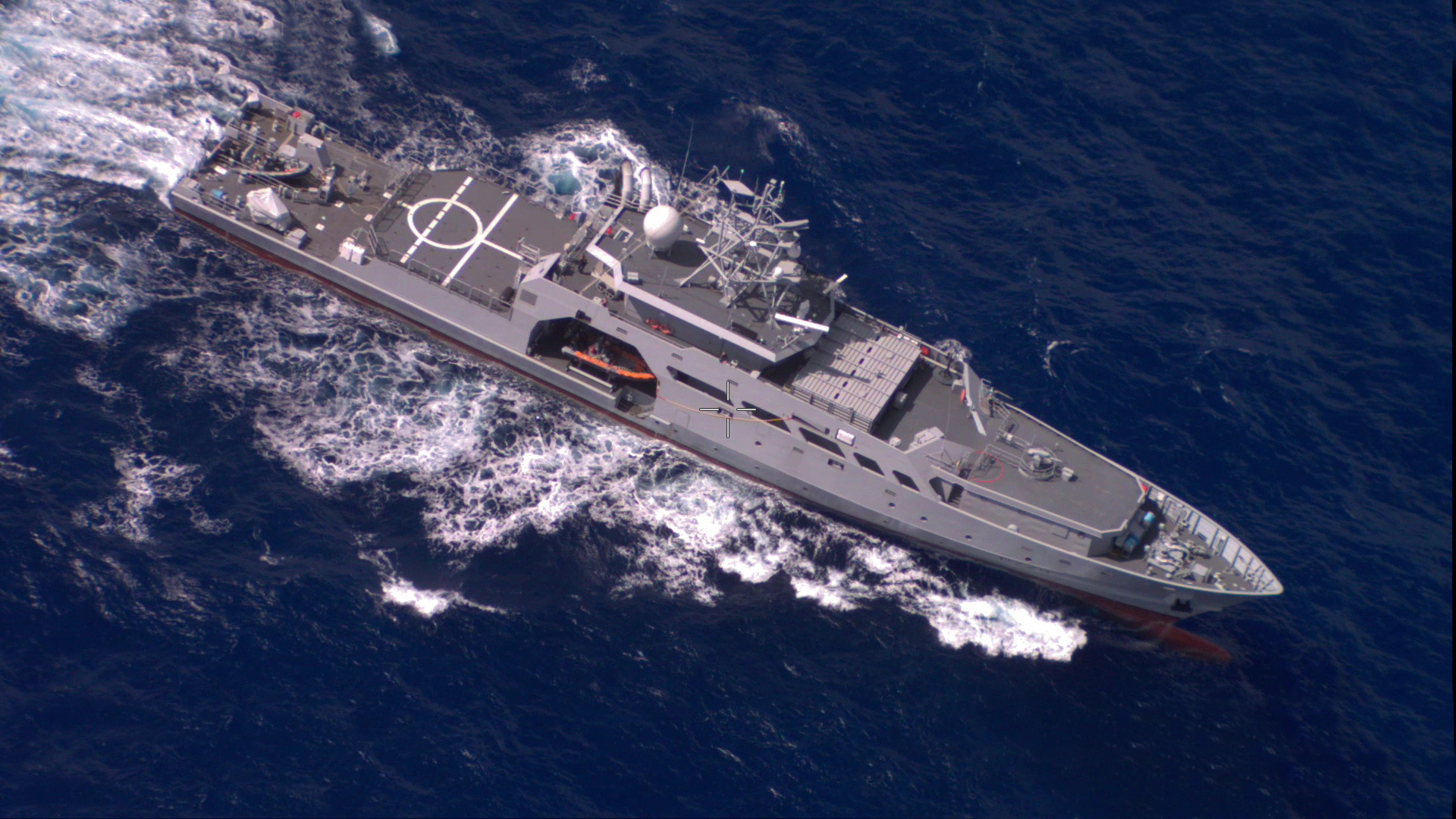
Enhancing maritime security and promoting sustainable fisheries management across the Pacific is a key outcome of Operation Kurukuru, which came to a close last Friday.
This two week comprehensive Operation underscores the unwavering commitment from Pacific Islands Forum Fisheries Agency (FFA), Members, Pacific QUADs and partners to safeguard the invaluable marine resources of Pacific Island nations and Western Central Pacific Ocean.
“Illegal, unreported, and unregulated (IUU) fishing activities pose a significant threat to the economic stability and food security of Pacific Island nations, undermining the efforts made toward sustainable fisheries management,” a statement from FFA says.
Fifteen PIC Members participated (Cook Islands, Fiji, Federated States of Micronesia (FSM), Kiribati, Nauru, Nuie, Palau, Papua New Guinea (PNG), Nauru, Republic of Marshall Islands (RMI), Solomon Islands, Tuvalu, and Vanuatu) alongside assets and personnel from the Pacific Quadrilateral Defence Coordination Group (Pacific QUADs, namely Australia, France, New Zealand and the United States).Operation Kurukuru 2023 (OPKK23) was conducted in the combined area of the 15 participating Members’ Economic Exclusion Zones (EEZ’s) and the adjacent high seas pockets in an area of operation (AO) approximately 21.3 million square kilometres which is over three times the land mass of Australia.
FFA’s Director General Dr Manu Tupou-Roosen highlighted the significance of Operation Kurukuru.
“This operation exemplifies the spirit of regional collaboration and determination among Pacific Island nations,” Tupou-Roosen said.
“By tackling IUU fishing head-on, we are not only preserving our marine resources but also securing the livelihoods and food security of our people. Operation Kurukuru reinforces FFA’s commitment to sustainable fisheries management and maritime security in the Pacific,” she added.
Operation Kurukuru, has an emphasis on boarding activities, cooperative surveillance engagements amongst FFA Members and the Pacific QUADs countries and the use of remote sensing information to drive intelligence led operations.
Key objectives of Operation Kurukuru included:
- Enhancing Surveillance and Enforcement: FFA Members in cooperation with the Pacific QUADs intensified surveillance efforts to detect and deter IUU fishing vessels. This included aerial and maritime patrols, as well as the use of cutting-edge technology to monitor fishing activities in the region.
- Strengthening Regional Cooperation: Operation Kurukuru encouraged information sharing and collaboration among Pacific Island nations, fostering a united front against IUU fishing. By working together, Members and partners aimed to increase the effectiveness of surveillance and enforcement efforts.
- Capacity Building: The operation focused on building the capacity of FFA Members and Partners to enforce fisheries regulations effectively. This included training programs, workshops, use of technology platforms and the sharing of best practices in monitoring, surveillance and maritime security.
- Promoting Sustainable Fisheries Management: Operation Kurukuru aligned with the broader goal of ensuring the long-term sustainability of fisheries resources in the Pacific region. By combating IUU fishing, FFA Members can protect their marine ecosystems and support responsible fishing practices
The FFA-coordinated Operation included 25 seconded officers within the Regional Fisheries Surveillance Centre (RFSC) from Australia, Fiji, Kiribati, New Zealand, Papua New Guinea, Samoa, Solomon Islands, Tonga, Tuvalu, U.S and Vanuatu. RFSC delivered a one week pre-operation training in collaboration with partners such as US Coast Guard, Starboard Maritime Intelligence, Hawkeye 360, the Joint Analytical Cell (JAC), Global Fishing Watch (GFW), International MCS Network (IMCSN) and Skylight.
The objective of the work was to build secondee’s capability to collate, analyse and filter MCS data in order to improve national and regional surveillance efforts in their EEZ’s and the high seas in the fight against IUU fishing.
The FFA RFSC coordinated intelligence to support all national headquarters, and inform aerial and surface deployments, including use of remote sensing technology to identify potential dark targets.




















